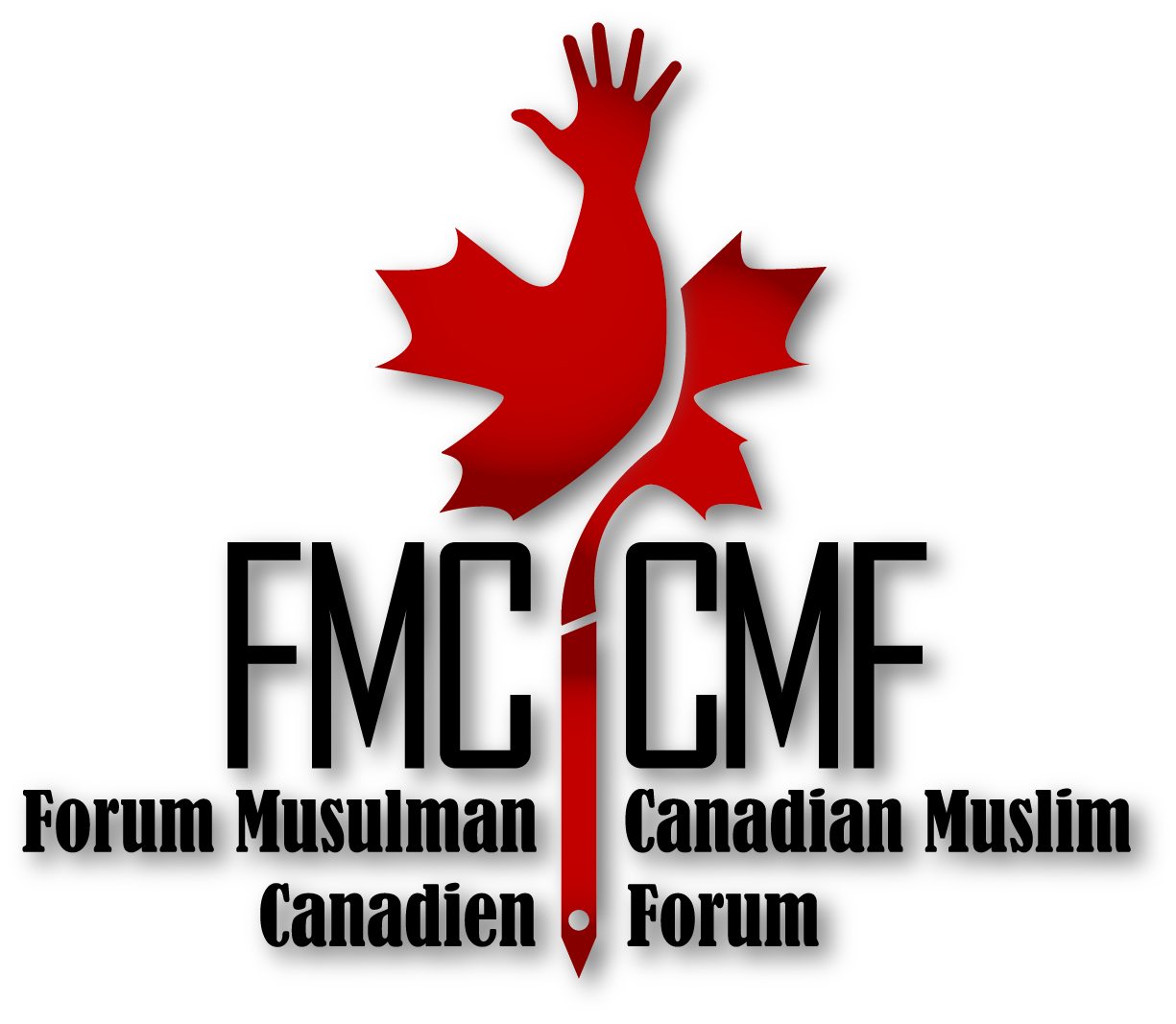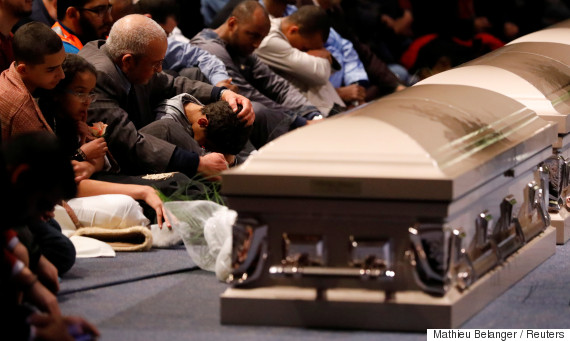Canada Needs The Political Will Required To Tackle Hate
*Samer Majzoub
As bullets harvested the souls of the victims, one after another, on the night of the Jan. 29, 2017 at the Quebec Islamic Cultural Centre, a new era of terror was inaugurated, signed by the bloodshed of those who lost their lives and the tears that have been shed by the 17 orphans and six widows left behind.
A young mourner is comforted during a funeral ceremony for three of the victims of the deadly shooting of the Quebec Islamic Cultural Centre at the Congress Center in Quebec City, Feb. 3, 2017. (Photo: Mathieu Belanger/Reuters)
The shock waves of that bloody night hit very hard across the country, creating fears, worries and uncertainties. The first few hours after the massacre, the main question that was uttered by the media, citizens and politicians was who had committed this crime. The picture came to be clearer when it was revealed that the shooter was a young student, from the same university where most of the victims either graduated from or worked at. Moreover, based on Facebook posts, comments and information from those who knew the shooter, it was revealed that his right-wing ideology was his instigator, leading him to murder innocent worshipers.
The only “sin” those murdered in the mass shooting carried was that they were all Muslims, who happened to be praying in the Centre. And the only reason why the killer decided to end their lives was a hate doctrine, represented by the Islamophobia and bigotry that have plagued the environment in Quebec, and the rest of the country, for many years.
Following Quebec’s tragedy, columnists, civic organizations, NGOs, politicians and the general public all agreed that xenophobia, Islamophobia and prejudice were the drive behind the violent incidents that have been targeting Muslim citizens. For years and years, warnings and public advice have been given to society’s stakeholders and the political classes regarding Islamophobia as an extreme form of discrimination and radicalization, which has been leading to violence targeting Muslim community.
The Quebec City massacre is a clear demonstration of the tragic end-product of letting Islamophobia go unchecked.
For many years, besides some soft talk, the concrete political will to tackle Islamophobia and other sorts of hate speech was almost totally absent from the public scene. On the contrary, various political platforms embarked on divisive agendas that inflamed the extreme ideologies that implanted the concept of “us versus them.”
Furthermore, some mainstream and social media became unchecked podiums for all those who shared their animosity and hostility toward their fellow citizens of different skin colours or beliefs. This dangerous combination can, very expectedly, create a path of hatred that may lead to fatal incidents. The Quebec City massacre is a clear demonstration of the tragic end-product of letting Islamophobia go unchecked.
Following the cruel killing of the six worshipers in Quebec City, there was an outpouring of sympathy and solidarity coming from every corner in the county in support of the families of the victims. Words of condemnation came from almost all politicians and public figures, bringing together all Canadians in their denunciation of the terrorist attack. The unfortunate reality came after this short term of solidarity which was presumed to be genuine enough to cause change in the toxic and bigoted environment that preceded the attack.
During the burials of the six victims, a spike of hate-related incidents were reported in various areas throughout the country, from Mosques being fire bombed to Muslim citizens being exposed to various physical attacks. Furthermore, there was a sudden increase of xenophobic incidences in many areas around the country as a result of political statements and positions held by those who have placed themselves at the forefront of the divisive rhetoric, creating friction within the Canadian social fabric.
Day after day and incident after incident, it has become a necessity that all systemic, racial and religious discrimination, including Islamophobia, must be studied thoroughly to come up with policies that will cure these social diseases once and for all.
Samer Majzoub, president of the Canadian Muslim Forum (FMC-CMF)

